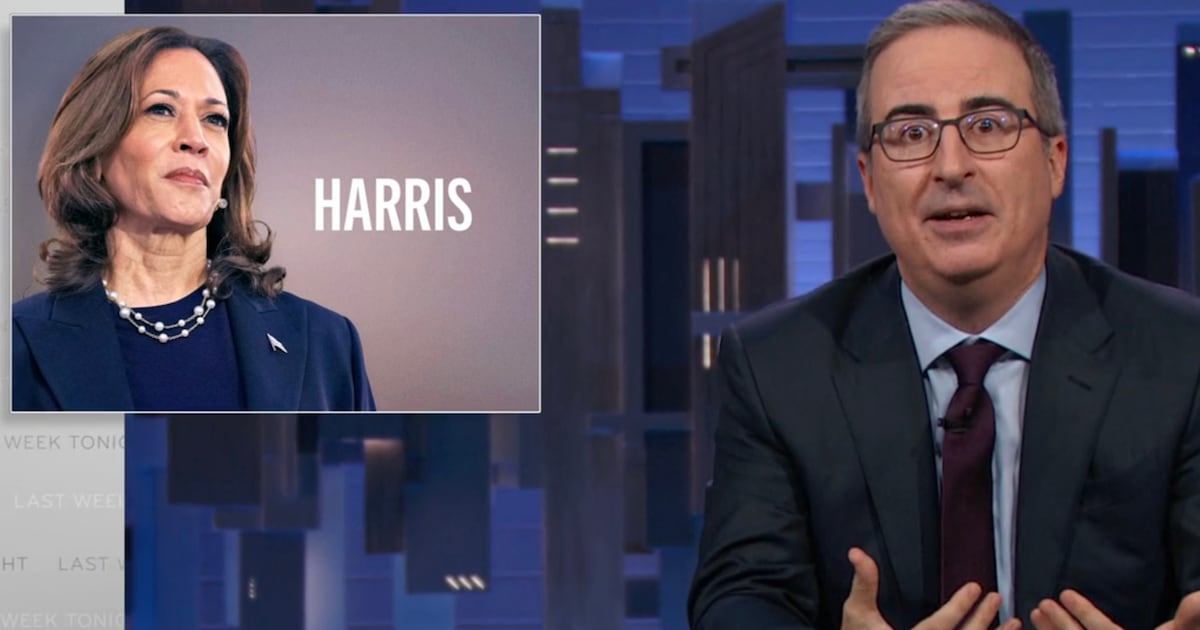Before Jon Stewart quit The Daily Show, he quit The Daily Show.
It was 2012, two years before he officially signed off from the Comedy Central series in 2014, and contract negotiations were going south. For an entire weekend, there was no longer a Daily Show hosted by Jon Stewart, and, not only that, Stephen Colbert had quit The Colbert Report, too.
The story is just one of the reveals made in The Daily Show (The Book), an oral history of the series that redefined political satire, news opinion, and an entire generation’s relationship to politics and the news.
ADVERTISEMENT
The book, by Chris Smith, features interviews with Stewart, Colbert, dozens of the show’s correspondents, guests, producers, writers, and staffers for a complete look at what it took to make television history. For all the fun it looked like everyone was having, it turns out the climate behind the scenes wasn’t always such a joy. (Though, to be clear, there was plenty of that, too. Tired joy, to read the staffers’ accounts. But joy nonetheless.)
Stewart’s two exits from the series, including his the lead-up to his final goodbye and hunt for a successor, are among the more interesting anecdotes.
Much of the book is that kind of inside baseball: industry-focused tales about network dealings and producer politics, anecdotes about tumultuous personal relationships between staff members, and sausage-making insight into the show’s transformation from scrappy late-night program to cultural juggernaut.
It’s an engaging look at crucial and human elements of The Daily Show that didn’t make headlines, but here’s what the major players had to say about the stories that did—plus a few secrets along the way.
Stewart’s Almost Early Exit
In spring 2012, Stewart was up for another contract negotiation, and the host wanted time off to film Rosewater, the script that he wrote and wanted to direct. Raising the stakes, Stephen Colbert’s contract at The Colbert Report was up for negotiation as well, and was, according to Stewart and Colbert’s shared manager James Dixon, confusingly contentious.
So Dixon decided to negotiate both hosts as a package. Stewart blamed the thorniness of negotiations on Phillippe Dauman, then-chairman of Viacom. “I don’t think Phillippe saw in any way saw what we do as special,” Stewart says. “As far as he was concerned the star is the real estate, and whether or not we are the ones who carved out that real estate and made it valuable is not important to him.”
Stewart planted his feet on getting the time off to shoot the film. They countered with eight weeks off and a $500,000 per day penalty for any time he went over—in effect making it impossible for Stewart to leave to direct. “So I quit,” Stewart says. Colbert went along with him, even telling his daughter that the Report will be over come Christmastime and to expect to see him at home more.
A day later, Dauman called Stewart, panicked. “Tell me about this movie…” he said. Suddenly the negotiations started again, and the deals were done—albeit still confusing.
Colbert wanted to renew for four years, taking him through the 2016 election. The network wanted to align his deal with Stewart’s, so they shortened his contract for two years, which, in the end, would free Colbert up to take over for Dave Letterman, something that wouldn’t have been possible with the terms he had originally proposed.
Trevor Noah Wasn’t the First Choice to Be Stewart’s Successor (Or the Second… Or the Third…)
Not locking Colbert in for four years wasn’t the first time Comedy Central shot itself in the foot and bled talent out of the bullet hole.
John Oliver, of course, served as Stewart’s replacement while he was gone shooting Rosewater. When his summer hosting was over, it was clear that he couldn’t go back to simply being a correspondent. It wouldn’t be rewarding. Yet, despite being a clear star in the role, the network never locked him into any kind of hosting contract. So when HBO came calling for Last Week Tonight, even Stewart told him to take the offer he couldn’t refuse.
When Stewart made the decision to leave soon after returning from the Rosewater shoot, not having a deal in place for Oliver was a missed opportunity. Not only was he everyone’s first choice for replacement, Stewart says he may have even stayed longer if there was a system in place for Oliver to permanently fill in for him every summer.
So how did talk move from there to Trevor Noah? There’s a story that several people in the book tell, including Stewart, about the first time Stewart saw a tape of Noah doing comedy back in 2013 when they were searching for new correspondents. “I’d say within thirty seconds it was like, ‘Oh, that guy could do my job.’”
“It was very clear he had a great deal of presence, a great deal of confidence, but also a really nice manner of thinking, of breaking down material in a way that was not rote, and it was unusual, and it was unique and thoughtful,” Stewart recounts thinking at the time.
Still, when it came time to search for a replacement, Noah wasn’t at the top of the list. The network went after the names that made headlines—Amy Poehler, Tina Fey, Chris Rock, Louis C.K.—were never actually Stewart’s suggestions, “because I never thought they would do it.”
Amy Schumer was his top pick, after Oliver, of course, because he thought it would be nice to hire someone in-house from Comedy Central. It happened, though, that Schumer’s career took off at the exact wrong time for The Daily Show: “Now it almost seems silly that we thought we could’ve gotten her.” Key and Peele were another suggestion—and another pass—for similar reasons.
No one can remember who, in the course of these conversations, revisited the idea that Noah could do it, but there was another, surprising name that came up first: former correspondent Wyatt Cenac.
Wyatt Cenac’s Fight With Jon Stewart Was More Dramatic Than We Thought
By the time planning began to reunite all the former correspondents for Stewart’s last Daily Show, Cenac knew that Stewart had recommended him as a replacement. They exchanged a few polite, honest emails about it. “And then the Maron thing developed,” Stewart says.
The “Maron thing” is an interview that Cenac gave right before Stewart’s last show with Marc Maron’s podcast recounting his version of a fight he had with Jon Stewart over a controversial impression of Herman Cain that Stewart was being called racist for.
In 2008, Cenac was hired and was the show’s only black correspondent. Stewart, who routinely used voices—especially Jewish accents—to mock politicians, mocked Herman Cain with an impression that critics felt was racist. It was major news; the cable networks were running “Jon Stewart, Racist?” on their chryons. It infuriated Stewart, who wanted to fight back against the criticism in the next day’s show.
Feeling pressure in a writer’s room full of white people as the sole representative of the black community, Cenac stood up to Stewart: “I’m not saying you’re racist, but the impression reminded me of Amos ‘n’ Andy, of Kingfish.” Stewart exploded, insisting that it wasn’t racist. The conversation got more heated, with Stewart ostensibly taking the position of “I see what you’re saying, I don’t agree, let it go,” and Cenac not backing down.
Finally, Stewart shouts, “Fuck this.” The “this” is important, as it’s what most people in the room heard, but Cenac clearly heard, “Fuck you, I’m done with this.” The argument moves out of the writer’s room and continues for about another hour. It ends with Stewart apologizing, both privately to Cenac and pseudo-publicly to the office. He still feels bad about how he handled things, because of the pressure Cenac must have felt as the only black correspondent.
The incident shook up the entire staff, and Cenac left the next year. That everything was brought up again on Maron’s podcast, with Cenac’s interpretation of the “fuck” directed at him, ruined one of the last Fridays of the entire show, with the staff on the phone with The New York Times to comment on it instead of enjoying the time. And yet, Stewart and Cenac emailed back and forth again, and were apparently on good terms. But when Cenac received his invite to appear on the last show, it took serious convincing on the part of the producers to get him there.
It’s noteworthy that Cenac is one of the only major characters from The Daily Show history who didn’t grant an interview for the book.
Stewart Got into a Fight With Roger Ailes
Sometimes Stewart’s best, and even most willing guests, were the very people he called out on his show, which explains how Bill O’Reilly found himself at The Daily Show desk five times before 2010. Though O’Reilly’s gregariously pugnacious nature was such a target of the show that it even served as inspiration for Stephen Colbert’s Colbert Report character, Stewart respected that, as Fox News sped away into becoming a conservative, fear-mongering spin circus, O’Reilly somehow became an arguably grounding voice of reason at times.
So Stewart returned O’Reilly’s favors and appeared on The O’Reilly Factor in February 2010, going toe to toe with the host about Fox News and Roger Ailes’s ability to “mainstream conservative talk radio.” After the segment ended, Stewart was told the Fox News chairman wanted to see him in his office, and the two went at it for a half-hour.
“Ailes is saying, ‘You’re a Communist asshole. You don’t know what you’re talking about,’” Stewart remembers. “I’m saying, ‘You've mainstreamed this bile in a way that people can take it without it blistering their skin.” As Stewart’s manager, James Dixon, who was in the room, says, “It was incredibly uncomfortable and fascinating—two of the most influential on their sides of the spectrum going at it for probably a half hour.”
Still, many Fox News personalities would appear on Stewart’s shows over the years, some, like Chris Wallace, happily going home with the branded gift bags as a badge of coolness for their troubles. But there was one they never booked. “Why didn’t I accept his invitation to go on the show?” Glenn Beck says. “I am smart enough to know when I am going to lose a fight.”
John McCain Has No Hard Feelings
Both John and Cindy McCain grant interviews in the book in which they appreciate Stewart’s legacy, which is significant as they were major players in crafting it: a bit with Steve Carell and the McCains the very first time The Daily Show went to a political convention marked a key moment for the show figuring out its perspective on political commentary, especially when involving the politicians themselves.
McCain would go on to be a friend of the show, appearing several times for provocative conversations made all the more interesting because he and Stewart, respectfully, didn’t always see eye to eye. But, in track with the evolution of the show itself from playful to pointed and at times even angry, those conversations would become more contentious as Stewart would hold McCain accountable, to his face, about what he considered pandering too far to the right and defending the Iraq War.
The senator would appear one more time during the 2008 primaries, but never again. And so he was replaced by an ornery puppet, which the McCains duly praise in the book as hilarious.
"Jon and I had our disagreement,” McCain says in the book, bemoaning that so much focus is put on that one thorny interview. “He is like Mark Twain or Will Rogers. He is a modern day humorist of that genre, on that level. Absolutely, I took that gift bag every time I was on the show. Absolutely, it was one of the nicest bribes I ever got.”





